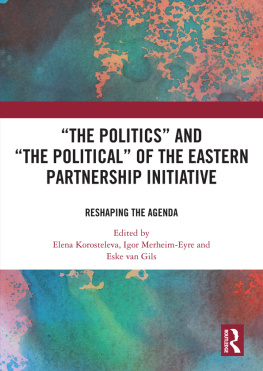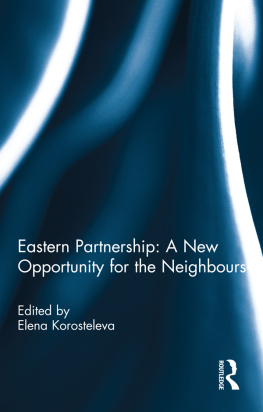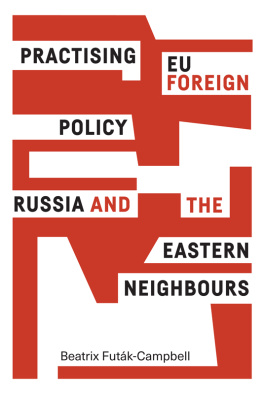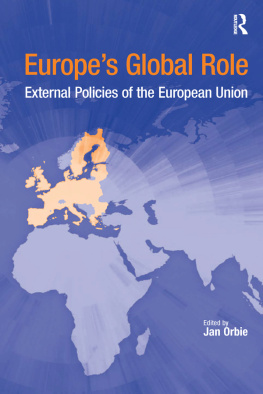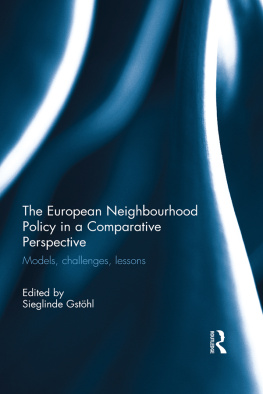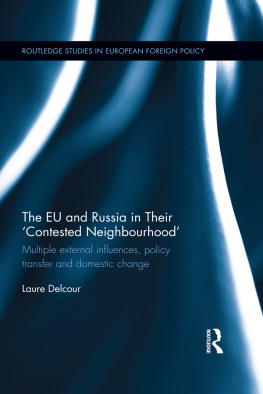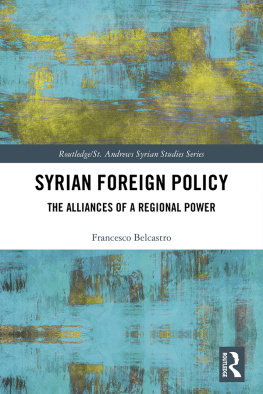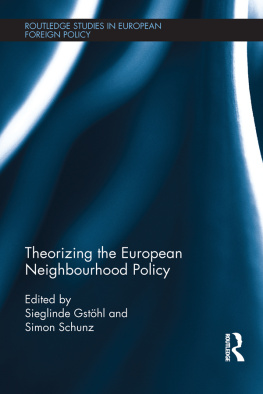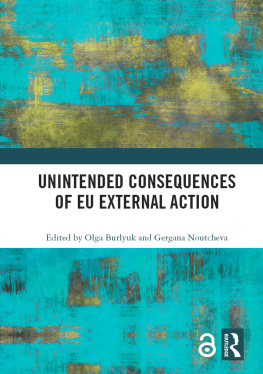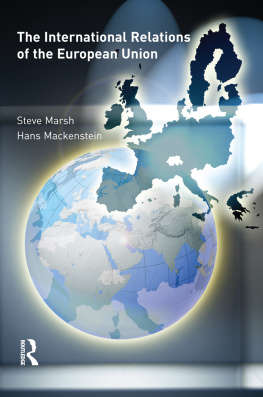The Politics and The Political of the Eastern Partnership Initiative
This book consolidates new approaches to the study of the European Unions (EUs) role in the eastern neighbourhood and beyond, informed by post-structuralist traditions in international relations. More specifically, by revisiting the European Neighbourhood Policys agenda from the conceptual perspective of the political and redefining the notions of othering, differentiation and normalisation, this book renders a new and much-needed theoretical and empirical outlook onto the policy developments and their practices. By unpacking and connecting security, regional, institutional, normative and sector-thematic policy dimensions, the book seeks to re-politicise the agenda and re-focus policy revision on understanding the fundamentals of power relations when applied to the EU external relations. In light of the compounding crises, external and internal, one can no longer afford to simply tinker around the edges of the policy content and instruments. A more radical theoretical undertaking is overdue to re-shape, re-define and re-centre the EU relations with the eastern region especially, put in the context of the new EUs Global Security Strategy, and the new aspirations for the 2017 European Neighbourhood summit.
The chapters in this book were originally published as a special issue of East European Politics.
Elena Korosteleva is Professor of International Politics and Jean Monnet Chair of European Politics, at the School of Politics and International Relations, University of Kent, UK. She is Director of the Global Europe Centre and LSE IDEAS Visiting Professor.
Igor Merheim-Eyre is a Research Fellow, Global Europe Centre, University of Kent, UK.
Eske van Gils is Postdoctoral Research Associate, GCRF RCUK COMPASS Project Comprehensive Capacity-building in Eastern Europe and Central Asia, and Research Fellow, Global Europe Centre, University of Kent, UK.
The Politics and The Political of the Eastern Partnership Initiative
Reshaping the Agenda
Edited by
Elena Korosteleva, Igor Merheim-Eyre and
Eske van Gils
First published 2018
by Routledge
2 Park Square, Milton Park, Abingdon, Oxon, OX14 4RN, UK
and by Routledge
711 Third Avenue, New York, NY 10017, USA
Routledge is an imprint of the Taylor & Francis Group, an informa business
2018 Taylor & Francis
All rights reserved. No part of this book may be reprinted or reproduced or utilised in any form or by any electronic, mechanical, or other means, now known or hereafter invented, including photocopying and recording, or in any information storage or retrieval system, without permission in writing from the publishers.
Trademark notice: Product or corporate names may be trademarks or registered trademarks, and are used only for identification and explanation without intent to infringe.
British Library Cataloguing in Publication Data
A catalogue record for this book is available from the British Library
ISBN13: 978-0-8153-5898-5
Typeset in MyriadPro
by diacriTech, chennai
Publishers Note
The publisher accepts responsibility for any inconsistencies that may have arisen during the conversion of this book from journal articles to book chapters, namely the possible inclusion of journal terminology.
Disclaimer
Every effort has been made to contact copyright holders for their permission to reprint material in this book. The publishers would be grateful to hear from any copyright holder who is not here acknowledged and will undertake to rectify any errors or omissions in future editions of this book.
Contents
Elena Korosteleva
Licnia Simo
Hrant Kostanyan
Igor Merheim-Eyre
Eske van Gils
Richard Sakwa
The chapters in this book were originally published in East European Politics, volume 33, issue 3 (September 2017). When citing this material, please use the original page numbering for each article, as follows:
Elena Korosteleva
East European Politics, volume 33, issue 3 (September 2017) pp. 321337
Licnia Simo
East European Politics, volume 33, issue 3 (September 2017) pp. 338354
Hrant Kostanyan
East European Politics, volume 33, issue 3 (September 2017) pp. 355370
Igor Merheim-Eyre
East European Politics, volume 33, issue 3 (September 2017) pp. 371387
Eske van Gils
East European Politics, volume 33, issue 3 (September 2017) pp. 388405
Richard Sakwa
East European Politics, volume 33, issue 3 (September 2017) pp. 406425
For any permission-related enquiries please visit:
http://www.tandfonline.com/page/help/permissions
Elena Korosteleva is Professor of International Politics and Jean Monnet Chair of European Politics, at the School of Politics and International Relations, University of Kent, UK. She is Director of the Global Europe Centre and LSE IDEAS Visiting Professor.
Hrant Kostanyan is a Researcher at CEPS, Belgium, a Senior Key Expert at the College of Europe Natolin, Poland, and an Adjunct Professor at Vesalius College, Belgium. His research focuses on European Union (EU) institutions and decision-making, primarily on the European External Action Service (EEAS), the European Neighbourhood Policy (ENP) and the EUs relations with Eastern Neighbours and Russia.
Igor Merheim-Eyre is a Research Fellow at the Global Europe Centre, University of Kent, UK. He works as an analyst at the International Republican Institute and is a Research Fellow within the UPTAKE Horizon 2020 Project and University Association for Contemporary European Studies (UACES) Scholar.
Richard Sakwa is Professor of Russian and European Politics at the University of Kent, UK, and an Associate Fellow of the Russia and Eurasia Programme at Chatham House, UK. He has published widely on Soviet, Russian and post-communist affairs.
Licnia Simo is an Assistant Professor in International Relations and Researcher at the Centre for Social Studies at the University of Coimbra, Portugal. Her research interests include foreign policy analysis, security studies and European Union relations with the former-Soviet space. She is the national coordinator of the CASPIAN Marie Curie ITN.
Eske van Gils is a Postdoctoral Research Associate, and Research Fellow at the Global Europe Centre, University of Kent, UK. Her research focuses on bargaining power in European UnionAzerbaijan relations, with case studies on value promotion, legal approximation and security cooperation.
Elena Korosteleva
ABSTRACT
This article rethinks the Eastern Partnership agenda using Edkins framework of the political. Part of the problem, it argues, is the EUs failure to imagine a new social order, which would give a relational value to the Other, and not by way of disciplining it to the EU standards, but rather, by way of aligning differences to a shared normal. The article problematises power relations as a process of othering in order to re-conceptualise them via key notions of differentiation, and normalisation. It argues for bringing the political back in, for debating and legitimising contesting social orders.

